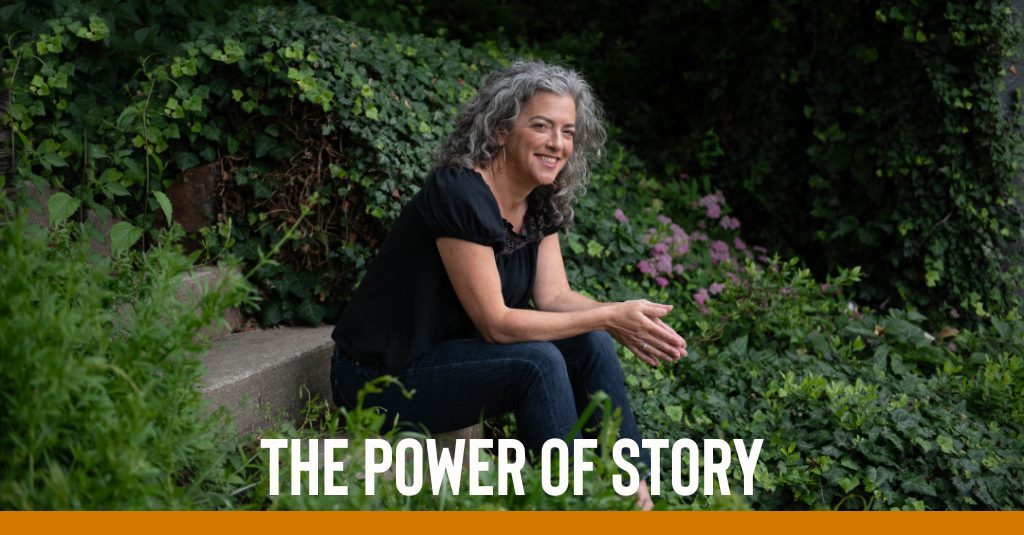Some historic events have occurred in the U.S. in the past two weeks. I wrote the following days after the assassination attempt and before I knew Biden would drop out of the race.
It seems like a good idea to discuss trust in stories. When we lead with a story, everything gets better. I usually kick off my talks and workshops with this line, knowing that stories can also be dangerous, and “better” is in the eye of the teller.
When you first heard the news of the assassination attempt, where did you turn to as your trusted source of information? How did you consume that information? Did you accept it as truth? Or, did you have questions about the integrity of the reporting? Did you question or even doubt any details? What stories did you immediately create in your mind in response, and then how did you have these conversations with friends and family?
Stories are, simply put, edits of what happened. Taken from various perspectives and told for various purposes, there is no single way to tell a story.
This plays out when we look at how different media outlets covered the events and, even worse if you are one to get sucked into the black hole of comments, including the immediate conspiracy theories that surfaced from people creating stories based on the stories they consume (not on-the-ground facts) – we can see a clip, hear an audio and make a snap decision on what is happening.
The media is in a powerful position because we, the average citizen, rely on it for information. Still, journalist Natalie Fertig confirms that stories are told in many ways when she said: “Outlets have different standards for how to address (breaking news).”
She goes on (for the full post, see here. Following are excerpts):
- Newsrooms are scrambling on a summer Saturday and smaller newsrooms will often be slower to update because something like this has to go through multiple channels/checks and they don’t have as many bodies already online/up to speed.
- it’s easier to add more info than to take it away/walk it back. It’s better to describe how something sounded before getting confirmation than to guess exactly what happened and hope they’re right – esp. in a high stakes situation.…Also note: breaking news, especially this high of stakes, is stressful and fast. People get pulled in suddenly, lawyers and editors are double checking, you’re trying to task dif ppl to handle dif parts of the story. And then the official info you have is constantly updating.… this is one reason there is a press pool constantly traveling with POTUS to record what he does and what happens to him. Imagine if there were just some iPhone videos, people claiming to be witnesses sounding off on social and a few mobile pix as the record of this. *
This is your daily reminder that we may sometimes take in the news like a glass of water: We turn on the faucet and expect water to flow without thinking about its source. Most of us don’t have to worry about how we get our water, and that’s a luxury for which we should be grateful.
As storytellers, let’s pause and consider our own position and the role we play in our communities. It’s essential to be discerning story listeners. That comes down to curiosity, listening to stories with a critical ear, and not just turning the faucet on and drinking mindlessly.
At a time when trust in media is at an all-time low, ethical storytelling is paramount.
To revisit the idea of leading with a story to make everything better, it comes down to intent. There is a fine line between influence, which is what we want, and manipulation, which is subjectively the dangerous end of the storytelling spectrum. I say “subjectively” because I am not here to judge what is “better” and what is “dangerous.”
When the edits are made in service to the listener, we are influencing. When the edits are made to leave something out so people believe something that isn’t necessarily true, that is manipulation.
Influence is using the power of story to lift everyone. Manipulation is using the power of one over another.
Again, it’s subjective. There is no right and wrong, just like it is hard to find what is, at its very core, “true.”
I don’t have the answers; I only have questions. One is: Are you thinking about where your stories come from? Do you ask how the chicken was raised? See important Portlandia reference here:
If you’d like to explore more about how the media operates and the role of journalism in society, here are a few items that have prompted my thinking this week:
- Not All Things Considered: The Gist, Joe Pesca, a former NPR and Slate journalist, talks to Uri Berliner, former senior editor of NPR
- Here is Uri Berliner’s article about NPR coverage and trust in The Free Press
- Follow Jessica Yellin, a political journalist who formerly worked for CNN, ABC, and MSNBC. She now has her own channel on Substack (that’s a link for her paid channel, and I do get a referral) and Instagram.
*Source: @JessicaYellin, News Not Noise on Instagram
Take care out there.

SOME WAYS I MAY BE ABLE TO HELP YOU AND YOUR TEAM:
LEAD YOUR WAY: This mentoring/coaching program is designed to help you step into your leadership and show up as your best self so you can communicate to connect and amplify your impact.
COMMUNICATE TO CONNECT: In my storytelling workshops, I teach leaders of all capabilities how to engage authentically with their teams, community, and stakeholders to create meaningful connections that build trust, increase team engagement and lead to better fundraising and revenue generation.
Did you have something else in mind? Let’s talk and see how I might be able to help. Contact me and we’ll schedule a chat.
Stay in touch.
Sign up for our newsletter and receive a digital version of my book From So What? To So Funded! for free.

Leave a Reply